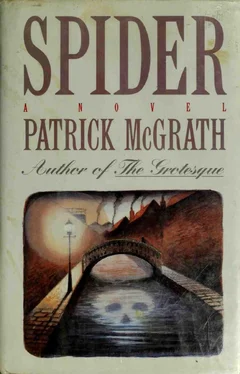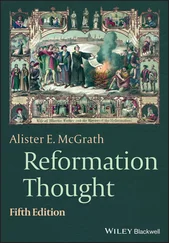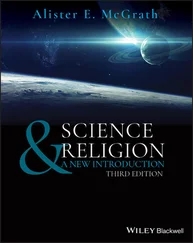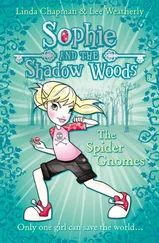My journal! Can it still be called that? Picture me at the dead of night down on my hands and knees in front of an obsolete gas fire, groping around for a brown paper bag smudged all over with soot. Gingerly it’s withdrawn, and I clamber to my feet and tiptoe with it across the room to my table. I wipe my hands on my trousers and take it out of the bag. That poor exercise book, a few short weeks ago a pristine thing with a shiny green cover—now it curls at the corners, it’s imprinted with the black smudges of my thumbs, it’s something you simply wouldn’t handle unless you had to: it’s a dirty book. Having wiped my fingers and put the paper bag to one side, I open this dirty book and turn the pages to the most recent entry, adding, with every fingering, a little more soot, a little more of the dirt of the house, transferring it from the chimney to the fading whiteness of the pages before me. I read over the last entry, then turn to a clean page, and pausing a moment, my eyes on the window, my pencil between my fingers, to frame the first words of the first sentence that will once more promote the flow of my memories and the construction, alongside, of a reasoned edifice of plausible conjecture, I begin to write.
I begin to write. And as I do a strange thing happens, the pencil starts to move along the faint blue lines of the page almost as though it had a will of its own, almost as though my memories of the events preceding the tragedy at Kitchener Street were contained not within the stubbled leather helmet of this head of mine but in the pencil itself, as though they were tiny particles all packed together in a long thin column of graphite, running across the page while my fingers, like a motor, provide merely the mechanical means of their discharge. When this happens I have the curious sensation not of writing but of being written, and it has come to arouse in me stirrings of terror, faint at first but growing stronger day by day.
Yes, terror. Oh, I am a feeble creature, yes I know it, I know it better than you do, I am so easily thrown into turmoil, so easily frightened and panicked, and it’s getting worse, I haven’t told you this for I’d been hoping that it might not be true, that I might be imagining it, that it might “just be me”—but it’s not. The feeling of being like a light bulb: it is with me all the time now. I felt it during the interminable hour I forced myself to sit in the dayroom. It wasn’t their thought patterns that so badly upset me, the thought patterns are coming from the top of the house; it was just their dead eyes, only their dead eyes, a single glance from a pair of those dead eyes has the potential to shatter me, to shiver my glassy identity into a thousand particles and leave the thin, barely glowing coil of filament within—the residue, the ruin, of what was once a heart, a soul, a life—leave it naked and vulnerable, smelling of gas, to the gale of the world that will surely snuff it to extinction in a second: and this is why, now, I must avoid their eyes, this is why I must skulk about by night, pursue my restless investigation of the opaque past like a creature of the shadows, like a halved thing, a body without a soul, or perhaps a soul without a body—ghoul or ghost it barely matters, what matters is that I nurse this glowing coil so that it can at least see me out, see me to the end of this thing, and this is why I am so prone to terror now, for I am conscious always of the danger of shattering, which in turns makes me crave control, which is why the sensation of being formed, framed, written makes me so desperately afraid. For that which can write me can surely also destroy me?
But I must go on, what real choice do I have? And perhaps, too (I have had a smoke and things never look quite so bleak after a smoke) I’m exaggerating my difficulties. I do, after all, have strategies, ways of coping, have had since I was a boy. For example there’s the familiar withdrawal into the more inaccessible compartments in my head: it was not only Spider the boy who shifted into the back room after his mother died, and let Dennis face the world. No, over the years Spider has learned that it is often necessary to allow Dennis to face the world, or “Mr. Cleg” for that matter; not only this, but intermediate compartments have become necessary—with Dr. McNaughten, for instance, who knows my history. The front of my head does not satisfy the doctor so he is permitted contact with what used to be the back of my head but is now a sort of chamber occupied by a Dennis Cleg with “my history”—but Spider’s never there! Spider’s elsewhere, though the doctor suspects nothing. Similarly with the dead souls: all is well provided Spider is elsewhere —but let me for a single moment show myself on the outer wheel of the web in which my fragile and beleaguered being lives — and this is the moment I am destroyed. This is how it is with me.
But what is wrong with me, that in order to save my life I must bury it within wheels, wheels strung on radials forming compartments—allotments!—containing only dead things, fetid, empty chambers where shadows and feathers, coal dust and dead flies, drift about, where the smell of gas is pervasive, and this is all there is—these holes, I mean, these smelly holes I’ve built around the Spider to save him from the gales and storms of the world? What sort of life is it, that can only take its existence dead at the hub of this ragged, wheel-like structure of empty cells?
When I was taken away from Kitchener Street there was some delay before they made up their minds what to do with me. I remember very little of that period: a blur of men and rooms, and the air everywhere crowded with thought patterns, always a sense of terrible tension, like the tension my father could generate in the kitchen at mealtimes. Then I felt catastrophe was imminent, and I felt my own wrongness most intensely. The light was never clear, I seemed always to be in shadow and so did the others, the men who went with me from room to room, all in thick shadow, as though a permanent twilight had gathered in those rooms and rendered all forms and faces indistinct, and their voices too grew hollow, grew deep, they boomed and echoed from out of the shadows that clung to them and the air, the dusk, through which I moved was thick with thought patterns not my own. I lived and moved in terror then, constant terror, desperately reaching back into the back parts until at last I crawled, exhausted, into that hole where for some short period of time at least I could be safe.
Later the world came more sharply into focus again. Shadows receded and I no longer had this booming echo of voices in my ears, I came to distinguish one man from another and although I knew they meant to do me harm there was at the same time the feeling that it might not happen yet, or that when it did happen it would happen with such suddenness and from such an unexpected quarter that there was little point in maintaining more than a reasonable degree of vigilance as I went about my routines. Routines! These were the days of routine. From morning to night all was routine, each day like the one before it, and the one to come after, and there was in this some comfort for me, at least during the quiet periods when I felt that I could cope with the thought patterns, when they didn’t mount up and mount up against me, filling the air with their staticky buzz and hum and click and clack like a blizzard of germs in constant excitation around my ears and the back of my head until there was no escaping them, not even back there in the quiet flaps and recesses where only the Spider could crawl—when that was happening then no routine on earth could dull the harrowing of the terror of the disaster that was imminently to befall me. Later though they always seemed to know when it was about to happen and they took me to a safe room, kept me out of harm’s way until I was quiet again. But what makes it all so disturbing to remember now—and I didn’t tell you this earlier, for I have only just remembered it—was that at those times there was always, always, always the pervasive and overwhelming and filthy smell of gas.
Читать дальше












